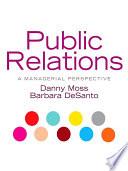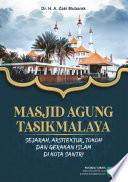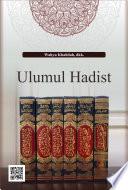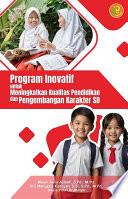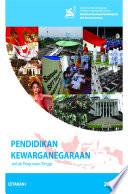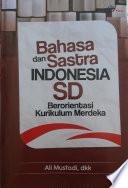
Bahasa dan Sastra Indonesia SD Berorientasi Kurikulum Merdeka
Buku ini adalah buku paling dibutuhkan oleh semua akademisi, guru, praktisi pendidikan yang konsen terhadap kajian bahasa dan sastra Indonesia Sekolah Dasar dalam mengimplementasikan Kurikulum Merdeka. Di dalam buku ini Bab I Filosofi, Konsep dan Teori, Bab 2 Problematika Pembelajaran Bahasa Indonesia Sekolah Dasar, Bab 3 Current Issues Pembelajaran Bahasa dan Sastra Anak, Bab4 Konsep Bahasa dan Sastra Indonesia SD pada Kurikulum Merdeka, Bab 5 Capaian Pembelajaran Bahasa dan Sastra Indonesia SD, Bab 6 Implementasi Capaian Pembelajaran (CP) Bahasa dan Sastra Indonesia SD pada Kurikulum Merdeka, Bab 7 Model-Model Pembelajaran Bahasa dan Sastra SD pada Kurikulum Merdeka, Bab 8 Perangkat Pembelajaran Inovatif Bahasa dan Sastra SD Kurikulum Merdeka, Bab 9 Pembelajaran Literasi Anak Sekolah Dasar.
- ISBN 13 : 6024984103
- ISBN 10 : 9786024984106
- Judul : Bahasa dan Sastra Indonesia SD Berorientasi Kurikulum Merdeka
- Pengarang : Ali Mustadi, Arif Wiyat Purnanto, Octavian Muning Sayekti, Nesi Anti Andini, Fera Dwidarti, Hesti Ariestina, Handara Tri Elitasari, Fajarsih Darusuprapti, Muhammad Asip, Hamidulloh Ibda, Arif Wiyat Purnanto, Octavian Muning Sayekti, Nesi Anti Andini, Fera Dwidarti, Hesti Ariestina, Handara Tri Elitasari, Fajarsih Darusuprapti, Muhammad Asip, Hamidulloh Ibda,
- Kategori : Foreign Language Study
- Penerbit : UNY Press
- Bahasa : id
- Tahun : 2021
- Halaman : 190
- Google Book : https://play.google.com/store/books/details?id=BtKREAAAQBAJ&source=gbs_api
-
Ketersediaan :
Buku ini adalah buku paling dibutuhkan oleh semua akademisi, guru, praktisi pendidikan yang konsen terhadap kajian bahasa dan sastra Indonesia Sekolah Dasar dalam mengimplementasikan Kurikulum Merdeka.

